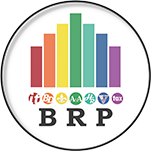We’ve provided information over this tax season about many different scams and tactics used to steal personal information from you. However, just because tax season has come to an end, this does not mean that scamming season has too. We’ve received an article from USA.gov about caller scams and what you can do to protect yourself, here’s the main points to consider:

Did you know that caller IDs can be faked?
If you receive a call from Washington DC from someone who claims they are from the IRS, beware! The caller may even know part of your social security number, they will threaten to sue, arrest, or deport you if you do not pay. They may even give specific information about how to send a payment such as pre-paid cards or wire transfers. The IRS will never contact you via phone, there are very few authorized collection agents who may contact you by phone call, but this will only occur once you have received multiple letters from the IRS with information about who is assigned to you specifically.

What can I do if I get one of these calls?
- Do not make any kind of payment or share account information!
Once you do this, there is no way to get the money back because the scammers are using false information and will disappear right away. If you have any questions about payments on taxes, visit IRS.gov/payments. You can also call the IRS at (800) 829-1040.
- Tell your friends and family!
The more people know about these scammers and their tactics, the less scam victims there will be. It is important to spread the word to everyone and stay updated on different methods used to obtain personal information.
Additional steps:
If you spot a scam, report it to the Federal Trade Commission.
Call the FTC at 1-877-382-4357 or go to this page.
For this, and more articles regarding scams, visit FTC Consumer Information.
 Business Resource Partners has an Enrolled Agent on staff who will help you with your tax preparation needs. We offer more than just tax preparation and bookkeeping! Visit Our Services section to find out what BRP can do for your business!
Business Resource Partners has an Enrolled Agent on staff who will help you with your tax preparation needs. We offer more than just tax preparation and bookkeeping! Visit Our Services section to find out what BRP can do for your business!